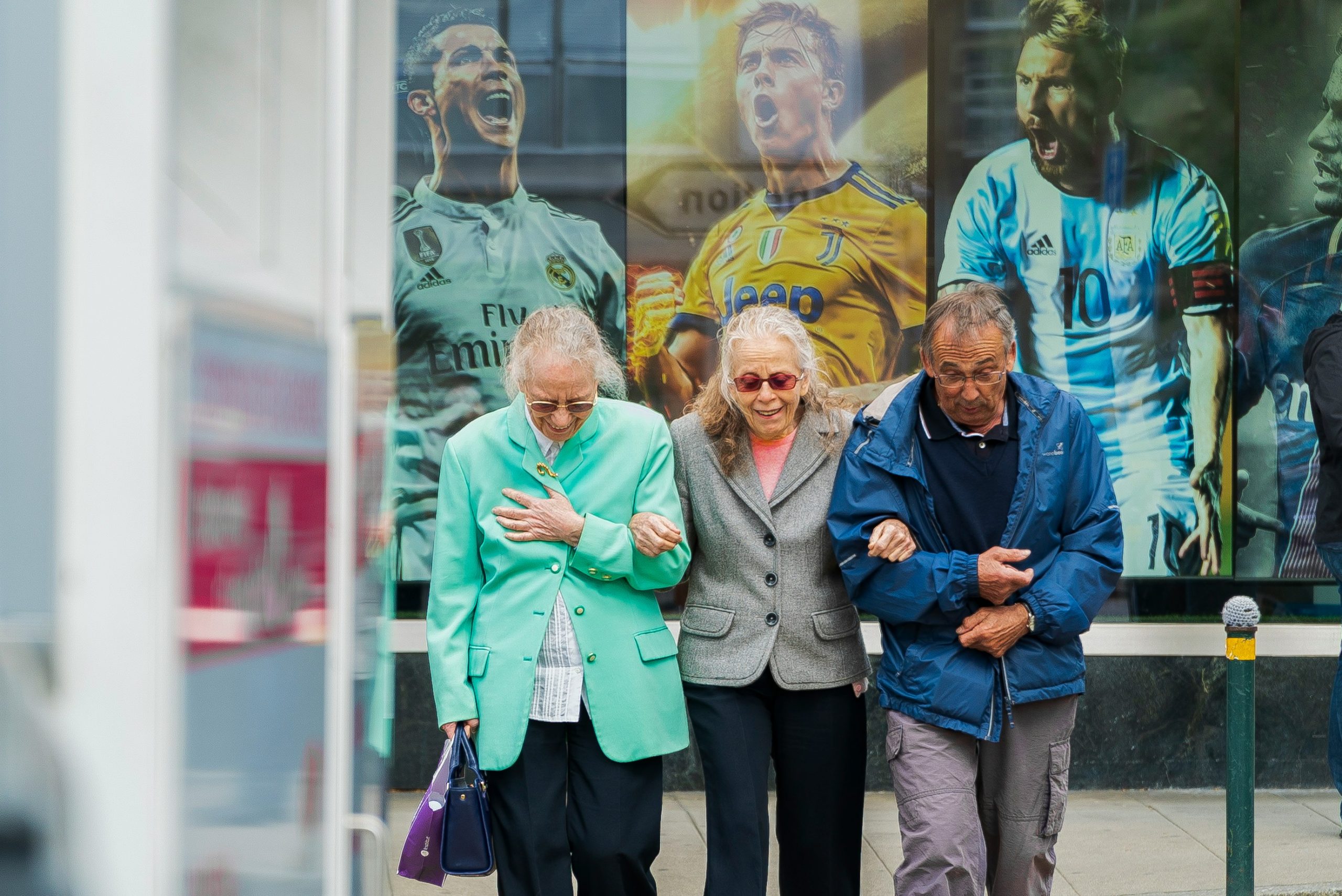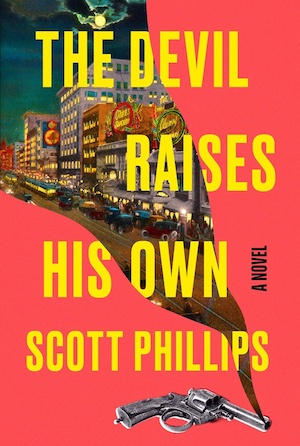In The Ministry of Time, an unnamed narrator serves as “bridge” (read: guide and guardian) to Victorian polar explorer Graham Gore, who’s been transported from his doomed mission to present-day London. From there, what at first seems to be a fish-out-of-water comedy unfolds into a meditation on the lure of bureaucracy, an exploration of both the liberation and trauma of Graham and his fellow “expats,” and an unexpected love story between Graham and the bridge.
If you were a bridge, what type of person would you want your charge to be?
Someone like Arthur Reginald-Smyth, the expat from the First World War—quiet, kind, sincerely interested in the world around him. The alternative would be to commit myself to the stress and anxiety of a really difficult, badly adjusted expat for the humor. Oh, you’re trying to kill the television because you think it’s full of demons? OK then. Make sure you put the ax back when you’re done.
Why did you choose for your main character, the bridge, to remain nameless?
There’s a hierarchy of names in the book. The bridge never names herself to herself, because she is herself, and doesn’t need to: She sees herself as the still, universal point of the turning narrative. The expats, whom she monitors, studies and obsesses over, she names in full: Graham Gore, Margaret Kemble, Arthur Reginald-Smyth, etc. People like Simellia, Adela and Quentin are major enough “characters” in her narrative for her to name, but she doesn’t name them “in full” as she does the expats, because she doesn’t imagine them in the same level of detail (which—no spoilers—is a major mistake on her part). Then there are people referred to by their jobs, like the Secretary and the Brigadier, who are not even people to her, but functions of institutions—another telling example of how she views the world and authority.
Early on, the bridge thinks about paperwork and the safety it provides, whether that’s for an immigrant or just for someone with a great deal of social anxiety. Do you see a connection between this sentiment and the way the bridge connects with the Ministry and bureaucracy?
Definitely. The bridge is fixated on the idea of control, and excessive documentation, choosing and fixing a narrative, is one way she maintains this. Though she would never admit this—would probably consider it a sign of character weakness—she has had to deal with the inherited trauma of a profound and terrifying lack of control, and it has made her obsessive about always having control, stability, protection. The specific way she has channelled this is into a fondness for bureaucracy, and a certain moral blind spot about the methods one might use to maintain control over a situation or a person.
“Time travel, in this world, isn’t a matter of cutting a door in space-time and stepping into another era; there are grisly consequences.”
Of all of the members of the Erebus and the Terror, why did you choose Graham Gore?
Our eyes met across a crowded Wikipedia page . . . I was watching “The Terror,” a 2018 show about the Franklin expedition, and I was trying to keep track of who was who in each episode by checking the fan wiki. Graham Gore appears in the first two episodes and I was intrigued by his name, so I looked him up. That was really all it took. I loved the pen portrait drawn by his commander, James Fitzjames: “a man of great stability of character, a very good officer, and the sweetest of tempers.” Who could resist?!

Every polar exploration aficionado has their favorites. Other than your charming re-creation of Graham Gore, who are yours?
My other polar exploration favorite is a wretched man named Robert McClure, who was eventually knighted and became a vice admiral. He is briefly mentioned in my book by Graham, who (historically) knew him and sailed with him. I couldn’t have made McClure a romantic lead. He was a severe, bullying officer who once gave his cook 48 lashes for swearing. But I find him fascinating, because his private letters and expedition diaries also reveal him to be a lonely, yearning, rather funny man who was fond of animals and suffered terrible stomachaches. I could write a whole novel about him, though the tone would be very different.
The other expats, especially Maggie and Arthur, absolutely stole my heart. Were these characters based on real figures as well, or more general research about their time periods?
The other expats are all entirely fictional! For Maggie and Arthur, I chose the Great Plague of London and the First World War because these events occupy such a major place in the British collective imagination. Given that one of the things I was keen to explore in the book is the way that history, as a narrative construct, informs national and personal identity, I wanted to offer them as representatives from British history who in fact completely break from stereotype and expectation.
Any scene involving Maggie took the longest to write because I wanted to get her language right. I’m particularly proud of “pizzle-headed doorknob.”
What is your favorite piece of research that did (or didn’t) make it into the book?
I extrapolated a lot about Graham’s personality from Robert McClure’s 1836–7 diary. They sailed together as part of an earlier Arctic expedition (which was successful, in that it came back with most of its crew alive). One of my favorite discoveries was that Graham—then 26—kept himself occupied by growing peas in coal dust. When they were harvested, he gave them to a sailor who was dying of scurvy in a sick bay. According to McClure, the poor fellow enjoyed them very much. There’s also the story of Graham cross-dressing . . . but I’ll save that for another time.
How did you decide on the way that time travel works within your world? When did the image of a door between times come to you?
For me, the core part of the time-door is not the doorframe, which is just a receptacle, but the actual machine that catches and funnels time. Though it isn’t seen until very late in the book, the reader knows by that time that it has been repeatedly mistaken for a weapon—and indeed, every time it’s turned on, something awful happens to someone. Time travel, in this world, isn’t a matter of cutting a door in space-time and stepping into another era; there are grisly consequences for using it. The machine is a technology, a tool, that can be violently exploited, like gunpowder or the split atom.
“If you want to be a good immigrant—whether from another country or another era—to what extent should you allow yourself to be exploited by your host state?”
I was so taken with the concepts of “hereness” and “thereness” with the expats, and the implication that surveillance systems could only pick them up depending on how moored they were within their new time period. Can you talk about where this idea came from?
Thank you! I was inspired by a beautiful and important book, Time Lived, Without Its Flow by Denise Riley, which was written in the aftermath of the death of Riley’s son. It is an extended meditation on the ways that grief can take you out of the normative flow of time, so you exist in a different, frozen version of time to the people around you—there, not here. I was also thinking about the idea of a lost home that exists only in memory or stories, like Victorian Britain or pre-Khmer Rouge Cambodia. Even when those places are no longer “here,” they are always just “there,” in retelling, just out of reach.
As with the time-door, the physiological consequences of time travel, of choosing to be “here” or “there” and so visible or invisible to modern surveillance technology, can also be exploited. Imagine a spy who can be invisible on CCTV! If you want to be a good immigrant—whether from another country or another era—to what extent should you allow yourself to be exploited by your host state? As Y-Dang Troeung says in her memoir, Landbridge, the question asked of refugees is never “Are you grateful?” but “How grateful are you?”
Food is such a vital part of how Gore attempts to relate to his bridge. What drew you to food (and cigarettes) as a way to build the connection between them?
Almost every meal cooked by Graham in the book is one that my fiancé has cooked for me or that I’ve cooked for him. (I also stole some of my fiancé’s jokes for Graham, such as calling electric scooters “a coward’s vehicle.”) They are meals that remind me of what it feels like to be in love. Rather less romantically, The Ministry of Time started as a silly piece of wish fulfillment, to bring my favorite polar explorer into the present day, and among other wishes I would like to fulfill, I would really really really really really really REALLY like to have a cigarette. Imagine being a Victorian and getting to chain-smoke all day without knowing about the consequences. Dreamy.
Read our starred review of ‘The Ministry of Time’ by Kaliane Bradley.
Photo of Kaliane Bradley © Robin-Christian.








